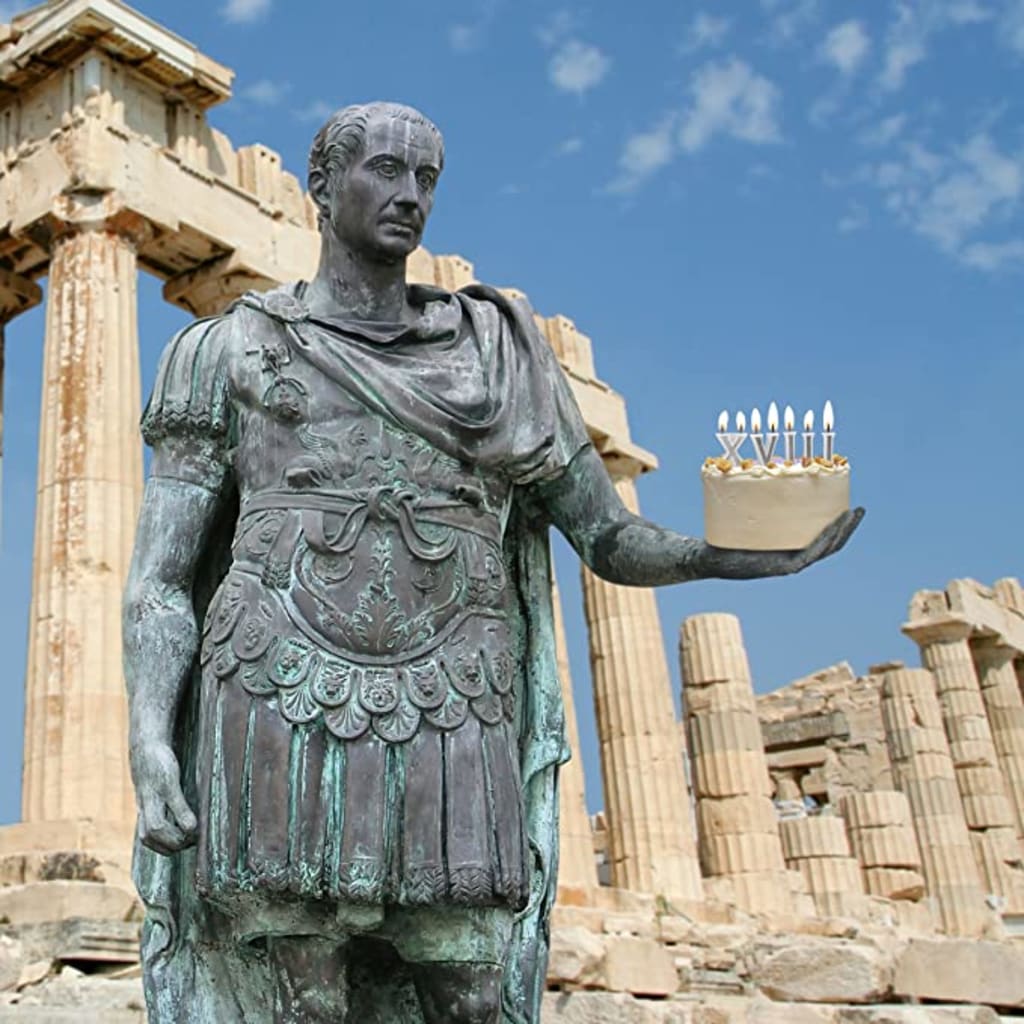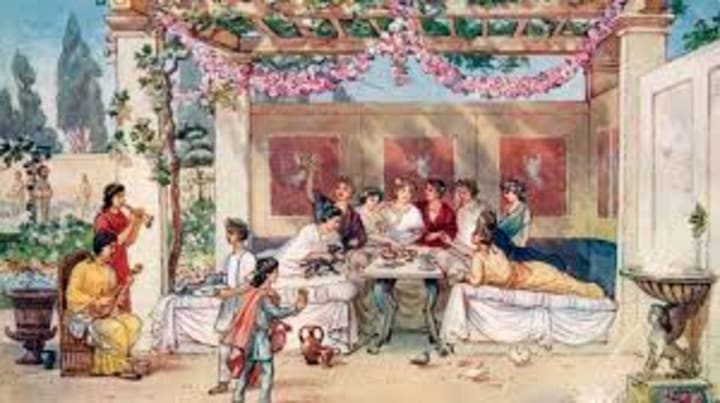The Greeks Really Knew How To Party
A Short History of Birthdays

It seems that these days people are in a constant pursuit of being recognized for some posting, achievement or Tik Tok dance. We seek validation within the digital world and on social media for our talent, our views and our hilarious missteps. To paraphrase the pop cultural icon, Andy Warhol, we all seem to be having our fifteen minutes of fame.
And as with all cultural phenomenon, there are those who actively express their views and demonstrate their talents on-line, hoping that the masses will elevate their social media post to the status of ‘viral.’ With others choose to use media, merely, to communicate with friends and family through photos and posts that detail important events in their lives.
I must admit that I fall into the category of in-between. There are a small circle of family and friends whom I chose to connect with through social media regarding my personal life. However, I also utilize social media to publicize my writings, short stories and novels with sci-fi and fantasy enthusiasts with varying success.
Given my background as a writer, one of the main requirements that I believe a successful writer must possess is an inquisitive mind. Given this frame of mind, I find it extremely difficult to merely accept a custom or tradition without question. There is an almost instinctive need for me to question; why do we do what we do? And I admit that this practice definitely gets in the way of simply enjoying life. But, conversely, it provides me with an endless amount of material for my prose.
This dilemma of seeking truth versus merely enjoying life’s customs was one that I face when I celebrated my most recent birthday. In this instance, I choose to embrace the social norm of the moment by having a Zoom birthday. The party guests included a small circle of close family and friends who provided me with my annual ‘fifteen minutes’ of feeling special for the accomplishment of having successfully being born. The party included a trivia game about me, singing happy birthday as well as showing off the birthday cake, with the assembled guests, inquiring half-jokingly, how they could get a piece through the computer? And I wholeheartedly assert that the gathered faces of friends and family on the computer screen did make my birthday. However, it was not long after that my writer’s brain made an appearance to inquire ‘why?’. Why is that we celebrate this particular day? Where did these traditions of cake, candles and presents come from? And finally, what are the most recent traditions for celebrating birthdays.

It seems that, if the Egyptians had had their way, we mere mortals would never have the opportunity to partake of a birthday celebration. A biblical reference from 3,000 B.C. is the earliest reference to the celebration of a birthday. However, this event was the celebration not of the day of an Egyptian’s day of their birthday. Instead, the birthday celebration took place when a royal Egyptian ascended to the position of Pharaoh, literally commemorating the day that they achieved the status of becoming a god on Earth.

Apparently recognizing a good manner of kissing up to the deities when they saw one, the Greeks adopted a similar practice of celebrating the birthday of their Gods. Most notably, the Greeks would create crescent-shaped cakes to honor the lunar goddess, Artemis. To replicate the luminosity of the moon, the Greeks lit candles and added them to the cake. So, the next time that you have trouble blowing out all those candles, you can blame the architects of modern society.

After the Romans conquered the Greeks following the decisive battle of Actium in 31 B.C., they began an almost symbiotic relationship which included borrowing many Greek practices and making them their own. This practice included the celebration of birthdays. However, the Romans were the first to extend the celebration to the common man. And when I say ‘the common man’, I do mean that specific gender of males. Females were not considered important enough to have their birthdays celebrated during these Roman times. It was not until after the 12th Century that women were included in this practice.

In typical fashion, Christianity rebuked any practice that was associated with Roman society, viewing the celebration of a ‘birthday’ as paying tribute to those pesky ‘pagan’ gods of the Romans. Additionally, Christian doctrine stated that people were born with ‘the Original Sin’— a built-in urge to do bad things and to disobey God. Therefore, the Catholic Church saw the celebration of birthdays as an evil practice. Conversely, the Greeks believed that giving gifts, lighting candles and generally surrounding people with ‘good’ cheer helped to ward off evil spirits, who apparently saw people celebrating their birthdays as easy targets.
It was not until the 4th Century A.D. that the Catholic Church condoned the practice of celebrating birthdays, mainly in an effort to convince Romans to switch from celebrating the Roman holiday of Santurnalia, a winter celebration of feasting and good will, to celebrating the birthday of Jesus, also known as Christmas.

The modern celebration of birthdays became more prevalent around the time of the Industrial Revolution. The improvement of mass production as a means for the creation of goods permitted individuals to have more leisure time in their personal lives. And one of the activities that people participated in, using this newly acquired leisure time, was the celebration of birthdays.
In more recent times, the modern birthday party is often held in many alternate venues besides the home, which allows parents the luxury of providing their child and his or her friends the experience of celebrating the birthday without the hassle of having to plan the party or clean up afterwards. Some venues that host birthday parties are, but not limited to, museums and cultural institutions, movie theaters, bowling alleys, and entertainment-themed restaurants, such as Dave and Busters’ and Discovery Zone. More recently, parents have had to become even more creative with the celebration of birthdays in the time of COvid-19 and quarantining.
Some creative celebrations have included outdoor celebrations in parks and playgrounds, drive-by birthday parades as well as the afore-mentioned Zoom party. To see that people are able to adapt during these difficult times, and continue to maintain a sense of normalcy, makes me believe that the tradition of birthdays and birthday parties is a practice that will remain with us for many years to come.
About the Creator
William Gold
William Howard is a graduate of LaSalle. He taught for 16 years with the School District of Philadelphia and volunteered at the Academy of Natural Sciences. He writes short stories and novels and lives in Philadelphia with his wife, Bonnie






Comments
There are no comments for this story
Be the first to respond and start the conversation.